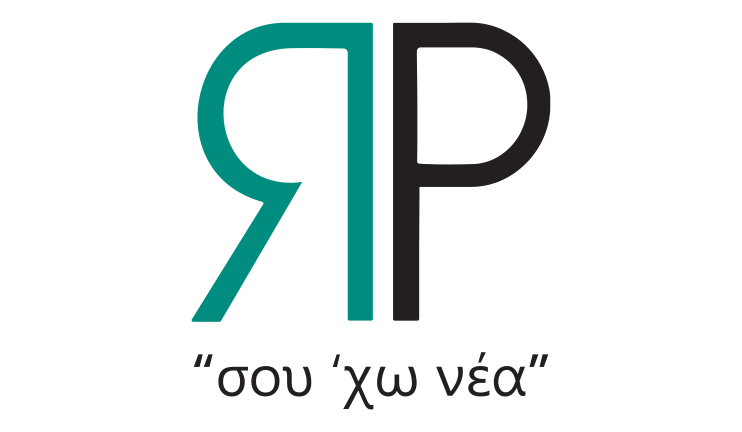We will review the key determinants of Greek foreign policy that were once operative but also describe policies that may no longer hold and what a new Greek foreign policy dogma should look like.
Policy has been too lax and the crisis revealed just how ineffective it is, so it is time to flex our own muscles with self-confidence and in our best national interest.
True to our promise of last Friday we will attempt within the realm of possibility to outline what a new foreign policy dogma for Greece would be at this critical time. For this effort to succeed we must recognize that the strategic problem of Greek foreign policy has to do with enduring insecurity that leads to perpetual defensive strategies that end up in retreats. That means that there needs to be a new framework of national confidence in ourselves and our capabilities. In other words, we must have national confidence in Greece.
The lack of national confidence in foreign affairs is linked directly to four determinable aspects.
The first aspect is that after the end of WWII and the division of global territory, which was evident as late as the 1990s, Greece belonged to the US sphere of influence. Greece’s geopolitical importance, as well as that of the European portion of Turkey, was that it was a geographical bulwark to a Russian path into the Mediterranean and the Middle East.
With the end of the cold war this importance declined dramatically and with the progress of European expansion and consolidation, the interest of the US in Greece was limited. These days US interest in expressed with no more than a few telephone calls, as occurred on the night of the Imia crisis and is also observable in how President Obama deals with Greece today. This is a second key consideration we must deal with.
As long as the “European family” lived on debt borrowing from the markets, there were no problems and things rolled along smoothly. And given this, Greek foreign policy found the best alibi for complacency. Any and all outstanding issues were to be referred for resolution to Brussels. Greece virtually resigned itself from formulating a national foreign policy and it transferred the representation of its national interests to the European Union. That is why every provocation from Turkey was answered with the tautology that we could block their path to becoming an EU member state.
Today Turkey does not suffer from suicidal tendencies and probably does not want EU membership, so what exactly is the Greek foreign policy strategy towards Turkey? Absolutely none. In fact because we are still doing the same thing threatening their entry to the EU, they are probably laughing at us.
Turkey can’t fulfill most of the criteria for EU membership anyway. What kind of Europe of democracy, culture and human rights can one point to when the EU has Cyprus as a member with half of its territory under occupation? So the third finding we must reach is that Europe does not have real values that it would defend.
This was entirely obscure when the European family was united and indulged in spending borrowed money from the markets. When the financial crises exploded in 2008 and market borrowing was restricted our “partners” instead of solidarity with Greece threw us to the wolves so they could save other lambs in their midst.
The fourth conclusion we must then come to is that Greece is indeed a sheep surrounded by the wolves of the market. So what negotiating possibilities does such a sheep have? We would argue it has quite significant leverage.
Staying with the lamb and the wolf analogy – what Greece must argue with the market wolves to keep them at bay is the following: The Greek lamb must convince the wolves that it would be silly on their part to devour the weakest and most sickly lamb when it can enjoy the happier feast on fattened lambs in the rest of the periphery that the shepherd is quietly hiding from the herd while the wolf is focused on Greece.
However, to convince anyone of anything you must first begin a conversation with them and you must have a clear strategy as to what you will say to them. The Greek government frankly isn’t speaking to the capital markets and if it were what would it say “don’t bite me too hard so I don’t hurt?”
Clearly Greece’s problem today is the markets and the stance taken by the EU towards them. It is nationally damaging that our fate is decided in negotiations within the EU without our real participation and input. In Europe everyone today is trying to save themselves in any way they can, a little akin to the Titanic disaster since the first class passengers have a better chance of safety.
In this situation the national foreign policy dogma can’t be “Greece belongs in Europe.” This stance not only won’t save us but it increases our exposure to dangers. The new dogma of Greek foreign policy should be “Greece belongs to Greeks.”
This tired old reused slogan captures the essence of the direction that Greek foreign policy must follow in this critical hour because when decoded it points to having confidence in our abilities. But it’s not enough to just say it, we need to mean it and to turn that into action.
With the first opportunity in the next editorial we will describe the basic tenants of this new dogma which relate first and foremost to how others beyond our borders should see us from now on. If we want to celebrate 200 years of the Greek Revolution in 2021 we need a more self-confident foreign policy today.
PS. There are many sides to this new foreign policy dogma and there is not enough time for a full analysis in this editorial. By December 13 we will have to speak to the “markets” without middlemen. We must tell them in terms of “financial diplomacy” how many billions it will cost them if we lose our cool under their pressure and send a battalion of our troops to the central square of Skopje with the sole mission of capturing and taking back the statue of Alexander the Great to its rightful birthplace.







